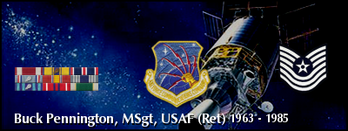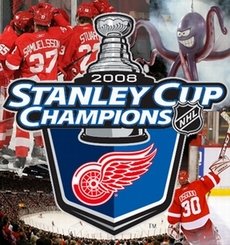So… I watched Dubya’s final
SOTU last night, the Democrat “rebuttal,” and the associated reek that passes for commentary on same.
My opinion?
A journeyman-like speech… nothing truly impressive, but nothing truly horrible, either.
Dubya’s best line of the evening for (heh) my money was his throw-away about the IRS accepting checks and money-orders if you absolutely, positively feel compelled to pay more taxes.
(OK, I added the adjectives.
He didn’t.)
As for Governor Sebelius, her opening paragraphs gave me hope we would hear something other than the same-ol’, same-ol’ partisan Democrat bromides and general rejection of anything/everything President Bush said. But after promising “an American, rather than a partisan response” she launched into a rather ridiculous “join us, President Bush...” kind of speech that was just what I feared it would be: partisan carping. And a lot of Democrats were less-than-impressed, too.
Ah, well. Plus ça change…
―:☺:―
Today’s Quickie…
Saw a billboard that said
'Need help, call Jesus. 1-800-005-3787'
...Out of curiosity I did.
A Mexican showed up with a dump truck.
From a Bud, via e-mail. This reads like Rodney Dangerfield. And it’s just as funny.
―:☺:―
I’m not the only one… In “Kamikaze Republicans,” a column published by Townhall.com, Wynton Hall writes:
Some unsatisfied Republican voters, especially conservative ones, have threatened to sit out the Republican primary in protest. Indeed, within GOP circles it is not uncommon that one may hear the refrain, "I'd rather have Hillary or Obama win and start fresh than to vote for a RINO (Republican in Name Only) or some half-committed conservative."
Rants of frustration such as these, while understandable, are baseless. More than that, they belie and betray the Republican and conservative arguments regarding the existential battle of our time-the long term threats posed by radical Islamic terrorism. In a time of war, the temptation toward "Kamikaze Republicanism" is both intellectually and ethically bankrupt. Worse, such sentiments stand to pose grave danger to the 2.4 million soldiers, sailors, airmen, and Marines who stand ready to do violence on the nation's behalf so that Americans might live freely.
To argue that there is not a "dime's worth of difference" between a President Hillary Clinton or Barack Obama vs. a President McCain, Romney, or Giuliani negates the entire range of national security arguments waged since September 11th. In one rhetorical swipe of tongue, Kamikaze Republicanism reduces the singular security threat of our age to rubble, for implicit in the argument is the notion that presidential leadership is impotent in effectuating military and geopolitical change. But as the enormously successful "surge" in Iraq continues to demonstrate, the strategic and tactical decisions leaders make affects the direction that events will take. Indeed, to suggest that General Petraeus's leadership and counsel would have been equally followed by a president beholden to and political dependent upon groups who smear and denigrate such a patriot with cries of "General Betraeus" is intellectual laziness in the extreme.
Even though my excerpt is long, it’s just the beginning of a wise bit of advice from Mr. Hall. His principal point is the wide gulf that separates the Democrat candidates and the Republicans (with the notable exception of that guy from Texas) pretty much begins and ends with national security. There’s obviously more differences than national security…things like the composition of the Supreme Court, taxes, economic freedom, etc. … but the over-riding issue in this campaign IS national security. Unless you think like a Democrat and don’t believe… never believed… we’re at war. A Democrat administration in peace time is one thing; we’ve survived those debacles in the past, and quite well, thank you. But a Democrat administration in these perilous times, given ALL of the Democrat candidates’ position on The Surge and the war in Iraq generally, is like putting Dr. Kervorkian in charge of the patient. I dunno about you, Gentle Reader, but I’d like a fighting chance. We probably don’t get that chance if Republicans/conservatives stay home on Election Day. History is already against the Republicans holding the White House for another four years…we don’t have to increase the odds against us any more than necessary.
Further in the same vein…John Hawkins of Right Wing News, in a column titled “The Ten Most Annoying Things About the Race for the Presidency,” writes:
The Intra-Party Blood Feud on the Republican Side: I'm all in favor of taking a hard look at the candidates and getting all their flaws out in the open during the primaries. Moreover, if a few sharp elbows get thrown in the process, that's all well and good. Heck, I've even thrown more than a few of those elbows myself.
But, the childish pouting, hysterical tantrums, and bitter carping are starting to get out of control. Conservatives would be a lot better off if they stepped back, breathed deeply, and took Reagan's 80% rule to heart -- "My 80 percent friend is not my 20 percent enemy" -- before they help create rifts that may take the GOP years to heal.
Put another way: Grow Up. Reasonable people can disagree, reasonably. And no one agrees with any one person about everything. That’s a life lesson that’s supposed to be learned somewhere between kindergarten and the fifth grade. Some folks appear to have missed a lot of school.
―:☺:―
I missed this last Friday, but as it’s said…Better Late Than Never. Fisking is kinda-sorta out of vogue these days. But…if you’re a guy, and if you’re fed up with all the rules, regulations, stipulations, and tribulations the opposite sex…or more appropriately, the media, ostensibly speaking for the opposite sex… seem to lay on us these days, then you should read “Relax, sugar-tits.” By Rachel Lucas. Let me repeat: that’s RACHEL Lucas… not Raoul Lucas or Robert Lucas. Rachel. (Hint: women just might wanna read this, too.) Here’s a taste:
One of these days I will write an epic about one of my biggest pet peeves, which is how in every commercial on TV that features a couple, the guy is retarded and the woman is sassy, clever, and dismayed with the retard. Really? We’re still doing that cliche?
But for now, kinda along the same lines, this morning I saw this article, 10 Things You Should Never Say To A Woman, that is, if you want not to offend the budding-flower tenderness of the ladies. Maybe I’m messed up in the head, maybe my parents just did something right, but I read stuff like this and I am so glad I’m not a man because being a man would mean being forced to put up with this shit without fighting back because that would make you a sexist pig jerk. So as a woman who isn’t inflicted with The Crazy, I’ll fight back for you guys. Because I am helpful like that.
And I’m helpful about providing entertaining and useful links, even if it’s stuff you may have already read. You’re welcome.
(h/t: Conservative Grapevine)
―:☺:―
In the “Wish I’d Said That” Dept…here’s K-LO at The Corner:
It goes on. But I can't. Where's room for parody in the world, when you have liberal feminists?
She’s talking about the National Organization of Women’s (NY chapter) denunciation of Teddy Kennedy (D, Chappaquiddick), in the wake of Teddy’s Barack endorsement. There’s a link to the NOW press release at NRO. And K-Lo’s right. The press release reads like Scott Ott wrote it, but he didn’t.
―:☺:―


 Today’s Pics: A preview of my next scanning project: illustrating my four-part tale (first installment here) about doing business (and a lot of other things) in the Peoples Republic of China in 1991.
Today’s Pics: A preview of my next scanning project: illustrating my four-part tale (first installment here) about doing business (and a lot of other things) in the Peoples Republic of China in 1991.
Two of these three pics were taken on the segment of the Great Wall that’s been largely restored for the tourist trade…about 40 miles or so outside of Beijing. It was cold that December day, Gentle Reader. Too cold for the way I was dressed, let me tell ya. But… I left my arctic gear at home, unfortunately. Still and even, the place was simply swarming with tourists, even for a cold late December’s day.
And: I’m a man, in Chinese eyes. Our interpreter told us there’s an ancient Chinese saying that says “one isn’t a man until one has walked the Great Wall.” Or something like that.
The third pic is of TSMP and a very young soldier of the Peoples Liberation Army, taken in Tiananmen Square. The boy was not impressed, was he?
 Our first full day in
Our first full day in  We returned to the hotel in the late afternoon, took a nap, and then went downstairs for dinner. I noticed the type of restaurants have changed at the Shangri-La over the last 15 years. We had dinner our first full night at the Shangri-La in a wonderful French restaurant that’s no longer there. And the cuisine was remarkable, what with a resident French chef overseeing the whole affair. The food was every bit as good as that served in any restaurant in
We returned to the hotel in the late afternoon, took a nap, and then went downstairs for dinner. I noticed the type of restaurants have changed at the Shangri-La over the last 15 years. We had dinner our first full night at the Shangri-La in a wonderful French restaurant that’s no longer there. And the cuisine was remarkable, what with a resident French chef overseeing the whole affair. The food was every bit as good as that served in any restaurant in  I had been given a contact number to call upon my arrival in
I had been given a contact number to call upon my arrival in  Wen gave us a running commentary of the history of the Wall all throughout our visit and included lots of trivia, including the fact that I was now a “real man.” Say what? Wen explained there’s an old Chinese proverb that says a man isn’t truly a man until he’s stood upon the Great Wall. Well, Allll-RIGHT!!! I’m a man, spelled M-A-N… da, da, da-DAH! (Apologies to Muddy Waters.) (pic: Wen and TSMP on the Wall)
Wen gave us a running commentary of the history of the Wall all throughout our visit and included lots of trivia, including the fact that I was now a “real man.” Say what? Wen explained there’s an old Chinese proverb that says a man isn’t truly a man until he’s stood upon the Great Wall. Well, Allll-RIGHT!!! I’m a man, spelled M-A-N… da, da, da-DAH! (Apologies to Muddy Waters.) (pic: Wen and TSMP on the Wall) And then it was on to the Ming Tombs (there are great photos and external links at this reference), which weren’t nearly as interesting (to me) as the Great Wall. Whereas the Great Wall was over-run with tourists we were virtually alone at the Ming Tombs, a fact I found rather strange. The architecture was great as was the extensive collection of statuary, but the cold was really beginning to get to me by the time we arrived at the Tombs. And, as I mentioned previously, the lack of heat in the car meant that warming up was a virtual impossibility. (pic: At the Ming Tombs)
And then it was on to the Ming Tombs (there are great photos and external links at this reference), which weren’t nearly as interesting (to me) as the Great Wall. Whereas the Great Wall was over-run with tourists we were virtually alone at the Ming Tombs, a fact I found rather strange. The architecture was great as was the extensive collection of statuary, but the cold was really beginning to get to me by the time we arrived at the Tombs. And, as I mentioned previously, the lack of heat in the car meant that warming up was a virtual impossibility. (pic: At the Ming Tombs) There was meat, chicken, a huge baked fish (bass, I think), and numerous vegetables, some spicy hot, and some not. Each dish was deposited on one of those large lazy-susans one finds in Chinese restaurants all over the world, and we ate Chinese style. That meal was the best meal I had while in
There was meat, chicken, a huge baked fish (bass, I think), and numerous vegetables, some spicy hot, and some not. Each dish was deposited on one of those large lazy-susans one finds in Chinese restaurants all over the world, and we ate Chinese style. That meal was the best meal I had while in  The elevators at the Shangri-La had carpets inside with the day of the week lavishly embroidered on them, i.e., “Monday,” “Tuesday,” etc.. TSMP and I never figured out when, or how, the carpets were changed. We made a game of trying to catch the staff changing out the carpets, hanging out in and around the elevators at
The elevators at the Shangri-La had carpets inside with the day of the week lavishly embroidered on them, i.e., “Monday,” “Tuesday,” etc.. TSMP and I never figured out when, or how, the carpets were changed. We made a game of trying to catch the staff changing out the carpets, hanging out in and around the elevators at 


















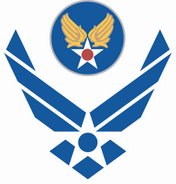

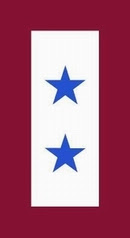
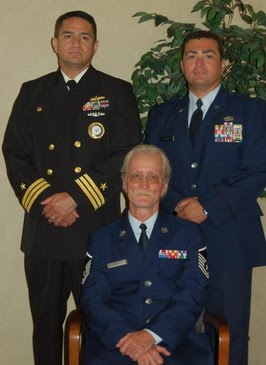.jpg)
